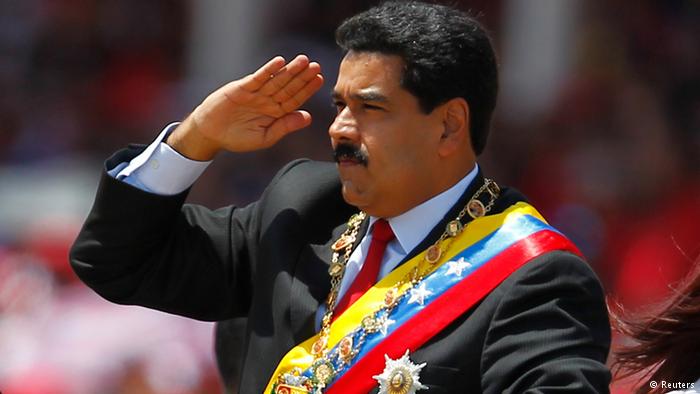The country of Nicolas Maduro just started its political transition. After he lost the National Assembly to the opposition coalition, the successor of the charismatic Hugo Chavez, Nicolas Maduro is running out of options for to maintain the country under control. Meanwhile, Venezuela’s financial situation has become alarming. The newly empowered Democratic Unity Roundtable coalition (MUD) might, change and cancel some foreign policy decisions that have become economically burdensome, including the country’s discounted energy shipments to Cuba and its oil-for-loans deal with China. Of course, these agreements exist as a product of close diplomatic relationships with the relevant countries, and political imperatives may be strong enough to keep them in place for the short term. But the threat of financial default will loom large for Venezuela in 2016; if Caracas finds itself in a debt restructuring process, its bargains with Cuba and China may no longer be worth the cost.
Analysis
Venezuela’s current foreign policy is the result of a major shift that took place during the rule of former President Hugo Chavez. Prior to Chavez’s election in 1998, Venezuela was a centrist state that was politically oriented toward the United States and Europe, and the country maintained some deals through which it exported limited quantities of oil at discounted rates.
But Chavez’s ascendance put Venezuela on a new ideological path. As its socialist ideology came to mirror that of Cuba, cooperation between the two countries deepened. Venezuela expanded low-cost oil and refined products shipments to Cuba to about 53,000 barrels per day in 2000. Then, two years later, an attempted coup to overthrow Chavez made Venezuela’s government even more eager to secure Cuba’s friendship, which officials hoped would help reinforce their hold on power. Over the next 13 years, Venezuela almost doubled oil exports to Cuba, bringing shipments to between 80,000 and 90,000 bpd by 2015. In exchange for receiving crude oil, gasoline and other energy products at rates below market value, the Cubans provided valuable intelligence and military assistance to the Venezuelan government, sending advisers to help train and equip its security forces. The export revenue helped fund the expansion of social programs that Chavez hoped would win him voter loyalty and avert future coup attempts.
As Chavez led the country in an ideological shift to the left, domestic spending grew even as foreign investment dwindled. Over his first decade in the presidency, rampant inflation, currency controls, hostility to private businesses and rising risk of default gradually cut Venezuela off from access to foreign capital. Its cash-strapped government soon turned to China for financing, looking to fund rising domestic expenditures that far outweighed what it earn from oil exports alone. The two governments struck agreements that ensured China could purchase hundreds of thousands of barrels oil per day. In return, China provided billions of dollars in loans to fund Venezuelan infrastructure projects, reinvestment into energy exploration and production, and funding for imports of Chinese goods.
Cutting Costs vs. Preserving Ties
In the wake of the opposition’s win of a supermajority in December elections, both of these agreements may now be under more scrutiny. Venezuela is looking for ways to make up for shortfalls in its budget, and the sale of oil on delayed payment plans to Cuba has been keeping badly needed funds out of the Venezuelan government’s hands. Still, scrapping either agreement would be a challenge. The oil-for-loans deal with China, at least, is relatively safe. Whatever its financial straits, Caracas is loath to risk its relationship with its primary foreign lender, largely because the deal with China gives Venezuela access to much-needed cash.

As for the agreement with Cuba, Venezuela’s longtime ally will likely fight to keep the deal in place. Cuba still depends heavily on subsidized imports from Venezuela, at prices it simply could not find on the open market. Cuba’s slow detente with the United States will take years to complete, and in the meantime, the embargo limits the country’s supply of foreign currency, which it needs to fund crucial food and fuel imports. In short, Cuba has a lot to lose from Venezuela’s financial insolubility: If Venezuela eventually defaults on its loans, the ensuing debt restructuring process would potentially put the Cuban energy agreement on the chopping block. But in the short term, Cuban officials may reach out to Venezuela’s new legislative coalition and successfully pressure it to keep the current discounts in place.
The Effects of a Default
Even with a new ruling coalition, there are limits to how much political will congress will be able to muster to risk the country’s ties with Cuba and China. Other programs may be more vulnerable to the cost-cutting proclivities of the MUD. The National Assembly may abate foreign aid or reconsider the Petrocaribe agreement, which allows participating countries in Central America and the Caribbean to pay for Venezuelan oil in installments over a 25-year period after paying a portion up front. Petrocaribe member states are actually paying more up front now than they were in previous years because the sum paid up front rises as the price of oil falls. But state-owned oil firm Petroleos de Venezuela has still been suffering severe losses. Caracas has already cut back on Petrocaribe exports, and the National Assembly may see curtailing the program as one small step toward a more balanced Venezuelan budget.
There is good reason to think that the MUD, even under pressure to resolve the country’s financial woes, will leave Cuban and Chinese trade agreements untouched for now. But without a comprehensive solution in sight, the threat of disorderly default next year is present and growing, and it could drastically shake up Venezuela’s political priorities. In the subsequent economic turmoil, some foreign interests will doubtless fare better than others. As a solvent lender of last resort, China will likely keep benefiting from bountiful Venezuelan oil imports, while Cuba will probably fare more poorly.


